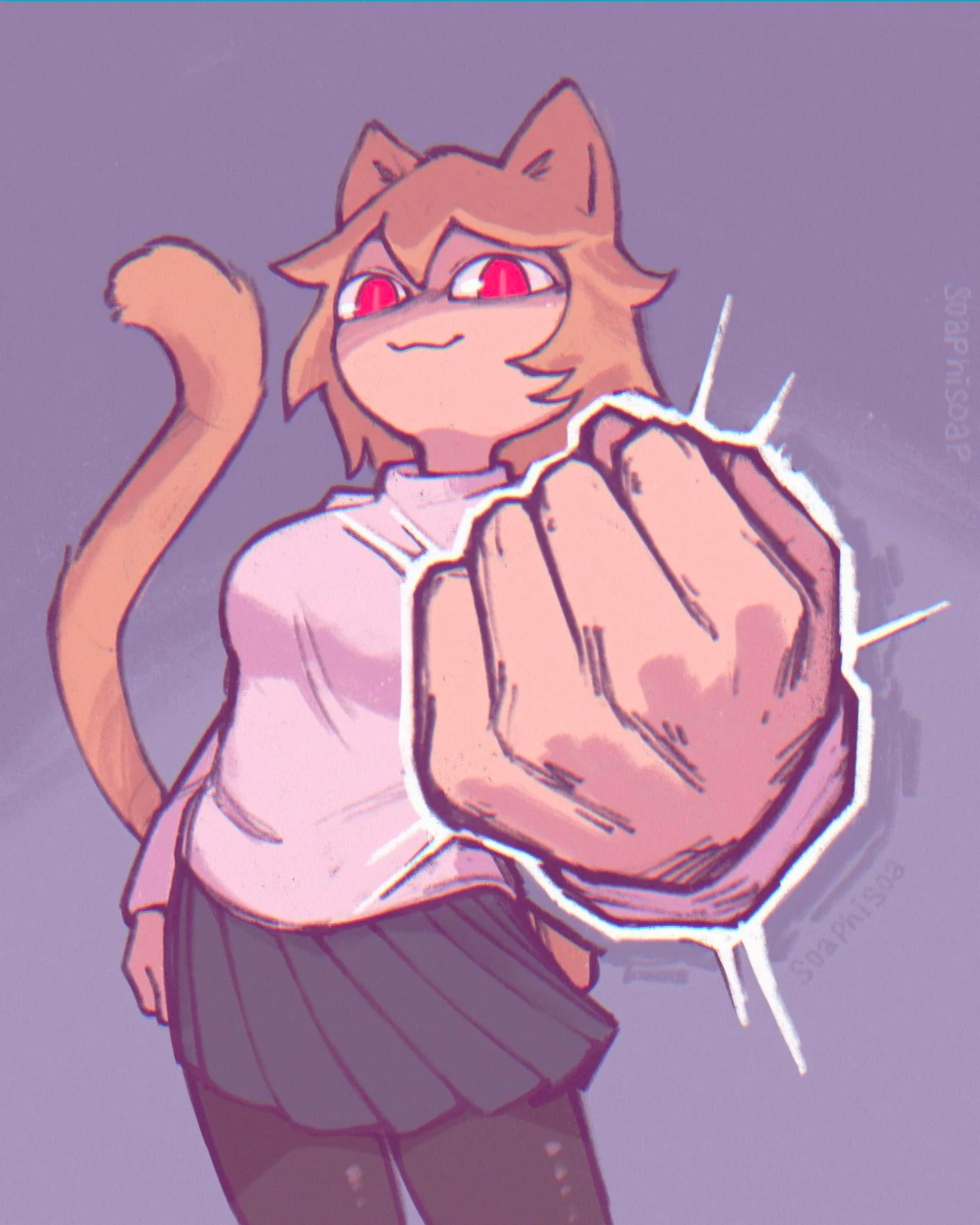TRPG Player Aims For The Strongest Build In Another World ~Mr. Henderson Preach the Gospel~ - Vol 2 Chapter 7
- Home
- All
- TRPG Player Aims For The Strongest Build In Another World ~Mr. Henderson Preach the Gospel~
- Vol 2 Chapter 7 - Henderson Scale 1.0 Ver0.1
Vol 2 Chapter 7 – Henderson Scale 1.0 Ver0.1
In every manor, there exists someone known as “Untouchable.”
This may refer to customary tradition… or be based on sheer ability, among other factors.
At the edge of the manor, a man groaned. Clutching his stomach as if to contain the mounting pressure—and desperately holding back intestines that threatened to spill over—he knew that once they overflowed and touched the earth, there would be no saving him.
He had witnessed this countless times—on battlefields, in the wild, on the highways.
Yet, he had never experienced it while clenching his own abdomen.
It was the sight displayed by enemies, women, children, and merchants—the prey destined to be “reaped.”
Certainly not a sight that an attacker—or the leader commanding a band of thirty thieves—should ever be seen.
Even as he struggled to recall what had gone wrong and searched his memories, nothing made sense; nothing had seemed out of the ordinary.
The setup had been perfect, or so it was meant to be. Scouts had been sent to check the schedules of the magistrate and the lord’s inspection teams, while several men disguised as travelers scouted the village to confirm the absence of soldiers.
They had lingered for several days, meticulously noting the times when the watchtowers were manned and shifts changed.
Then, on the eve of the Sabbath—on the one night when the manor’s inhabitants could afford to sleep in lazily—they were graced with the rare fortune of a moon concealed behind heavy clouds.
Really, where was there any room for criticism?
The self-defense force numbered at most about ten people. Even if every person capable of handling a weapon were mustered, there would be only around thirty.
In such circumstances, launching a surprise attack was far more advantageous. One would first break into houses known to shelter members of the self-defense force or set fires, and then the rest would be as effortless as “shooting ducks.” Enjoying the soft, delectable prey for a few days, and then simply cleaning up and leaving without a trace.
By sticking to this routine, he had been plundering villages and manors in neighboring countries for seven years. Even in the Line Mie Empire—where fellow bandits tremble at the frequency and precision of the inspection teams—he had maintained his outlaw trade for an entire year.
And yet, this time, there was no room for complacency. Or so it was supposed to be.
But this is how it turned out.
When his subordinate, who had infiltrated the enemy ranks, signaled “all clear” by alternately swinging two torches, he charged in. He had managed to lightly scale the stone wall that loosely encircled the manor’s residential area, fully roused with a “Let’s do this!”—everything had been going well until that moment.
But in the very next instant, a rain of arrows descended.
Countless arrows were fired, raining down from above and sweeping horizontally.
His subordinates, caught off guard by the prospect of plunder, suffered grievous losses—about half of them were either slain or injured.
Though armed with looted weapons and at the very least clad in armor, they were rendered helpless by powerful bows capable of shattering defenses at close range.
Then came a single sword, swirling like a raging hurricane.
Beneath the flickering light held by one subordinate, the sword danced at a speed that left only afterimages; each time its perilous silver flash streaked by, a scream echoed.
Fingers, tendons, thighs—parts of the body were severed. Even those who should have been protected by sufficient armor fell in an instant.
How long it took was unclear, but it was undoubtedly over in the blink of an eye.
Even the leader, skilled with his blade, was nearly killed by a single strike that sliced through the gap between his breastplate and cuirass.
He crawled away, desperately trying to staunch his wounds even though blood loss left him barely able to move.
Even if he escaped, having lost his subordinates, he would no longer be able to fight.
He simply did not want to die. Despite all the killing he had committed before, he had never once harbored even the slightest resolve to face death.
For him, killing and being killed were not intertwined; he had never once considered the possibility of becoming the latter.
But that belief was mistaken.
Something struck his face as he crawled—a soft, oily sensation against his nose. It took him a moment to realize that it was the tip of a boot.
By sheer chance, the heavy clouds that had enveloped the new moon were swept away by the wind, and the moonlight revealed the boot—and the man wearing it.
“Ah… ahh…”
Looking up, he saw a lone swordsman standing there.
Clad in light leather armor, with a helmet whose front was widely open for clear vision, and carrying a plain sword, nothing about him was ostentatious.
Yet, even against the backlight of the moon, his blue eyes shone coldly and mercilessly.
“You’re the leader, aren’t you? Ah, no need to answer—your armor says it all.”
Those crisp, cold words cut deeply into the mind of the man—now reduced to a lone bandit who had lost all his subordinates.
They drove home the grim realization that he was finished.
The tip of the sword was pressed against his drooping chin, forcing his gaze—once fixed on his boots—to lift upward.
Pierced by that cold, unyielding stare, the man, for the first time, uttered words he had never before spoken, despite having heard them countless times.
Unconsciously, purely driven by the instinct not to die, he cried out:
“Hel… help me… don’t… kill me… please…!”
Hearing that pitiful, scream-laced plea, the swordsman’s expression turned as if he had bitten into something bitter—almost as if the very sight of the man was distasteful.
“Quite an extravagant request. Did you really say that?”
Yet the swordsman’s blade did not plunge in mercilessly. It was calmly withdrawn from his chin and, with delicate precision, returned to its sheath.
“However, I have no intention of sinking to the level of common bandits. Rest assured, not all of them are dead.”
Those cold yet almost syrupy words caused the man to force a slight, bitter smirk—as if to think that someone speaking so gently might be dealt with later.
“In fact, don’t think you’ll die here, you scum.”
And then, before he could plan his next move, his consciousness was snuffed out—completely without mercy—by a kick that struck his temple.
【Tips】In the Line Mie Empire, bandits are strictly regulated—even if they aren’t officially wanted, there is always a bounty on their heads. Even the lowliest can fetch a bounty of one libra, and a leader will have at least one drachma on him. For known criminals, a hefty sum of up to thirty drachmas may be placed on them. And a “bonus” is even awarded…
He tied up the bandit he had kicked and wrapped cloth around him to prevent his intestines from spilling out, giving him first aid. Not out of any noble sentiment that treating him would reform him, but simply because it was more convenient for him to stay alive.
“Hey, good work.”
Upon hearing that voice, he turned and saw Mr. Lambert. Though Lambert was quite old—he had continued in active service despite his advancing years—the sight was impressive.
“Well, you’ve become one hell of a man, haven’t you?”
And from the man who admired him even while restraining his own apprehension, he received an evaluation of “terrifying.”
“To think you could slice through twenty men in an instant.”
“Sounds awful.”
As Mr. Lambert, with a grim expression, surveyed the collapsed bandits still clutching their torches, a similar grim look crept across the observer’s face.
“I didn’t kill a single one of them.”
Because tonight, not a single one was killed.
“That’s precisely why you’re even more terrifying.”
Mr. Lambert sighed in exasperation and spread his arms wide to display the group of subdued bandits.
“No matter how chaotic things were, even for battle-hardened bandits, one wouldn’t normally be able to target and sever just their thumbs or tendons. I, for one, didn’t even want to do it.”
Not wanting to do it implies that one is indeed capable of such acts, and that was understood.
But then, it couldn’t be helped.
Bandits fetch a higher bounty if captured alive.
Laughing at the thought, Mr. Lambert wore an expression that was hard to describe as he scratched the back of his head.
What on earth was he holding back for? For a scoundrel who barged into a manor to do as he pleased, the outcome was inevitable.
These fools—sending out scouts might be acceptable, but their preparations were exceedingly sloppy. For travelers, the weapons and gear they carried were far too combat-ready (things like these are heavy, and seasoned travelers despise them)—not to mention their awkward use of the imperial language, with such peculiar intonation that hardly matched the status they claimed.
Moreover, while it might be forgivable to casually glance at the storeroom or the self-defense watchtower, gawking at the manor’s women was the height of foolishness. Rather than speaking to them, obsessing over which house they lived in was sheer idiocy.
“Isn’t it like marching around with a banner proclaiming ‘You’re up to no good’?”
Perhaps he’d become so successful at his work that he let his guard down. Precisely because his methods were so meticulous and difficult to counter, a lapse in concentration resulted in enormous fallout.
Above all, meddling with another man’s wife before even starting the job—what was he thinking?
Suspecting something was amiss, I immediately lost my temper, administered a bit of “conversation torture” to uncover the truth, and promptly prepared an “appreciation backstab.”
There’s nothing softer than the cheek of someone you believe is deceiving you.
And as you can see, everything went perfectly—the manor suffered no damage at all, and I even scored a handsome windfall. Isn’t that just splendid?
“Really, your staying on as a reserve member of the self-defense force turned out to be quite unfortunate for them, huh?”
“When someone goads, ‘Why don’t you try cutting them down one by one?’ it feels terribly contrived.”
I retorted sarcastically to Mr. Lambert’s ostentatious remark.
Ah, right. In the end, I stayed at the manor.
“All right, all right—you two are still getting along splendidly.”
“Margit… you should just wait at home.”
For the sake of my wife.
Now, while registered as a reserve member of the self-defense force, I work as the manor’s hunter. I’ve become a son-in-law to Margit’s family.
The reason things turned out this way, despite all my plans and preparations to become an adventurer, isn’t complicated at all. It simply happened that, after a bit of this and that, we got “friendly”…
“Your father is too energetic—it’s no wonder the princess can’t sleep.”
Margit, with an exasperated look—though she should be in her early twenties—still retained the same charming aura she had when we first met. In her arms, she cradled a young girl so adorable she could be mistaken for one of her sisters—a child who, like Margit, sported spider-like lower limbs and boasted “lustrous blonde hair and kitten-blue eyes.”
Yeah, these things happen; we’re only human. And I’m not at fault—the move came from her, after all!
So, with various circumstances at play, I ended up staying at the manor—much to my parents’ delight (and exasperation), and with my brother sporting an extremely conflicted expression—but I’m living happily. Sure, there are occasional troubles like this, but…
It’s still not a bad life. Though I’m now cut off from adventure, every day is filled with surprises. My six-year-old daughter, adorably unlike me, brings me endless joy as I watch her grow.
I can only be grateful to her for making me truly understand what it means to be a parent. It wasn’t planned, but at the very least, she has become a symbol of happiness in my life.
Now then, I certainly won’t be causing any more chaos that might upset both my wife and daughter at the same time. For some reason, my daughter can’t sleep unless I’m by her side.
Since there’s “no trace of return blood,” I’d better get to bed and put her in a good mood…
【Tips】For captured bandits, the bounty is paid at between a 50% premium and double the standard rate. For a leader, it can be as much as three to five times the usual amount.
In some cases, killing them outright is far more merciful, I thought. No—should I say he was forced back into leadership? The man who had once again risen as the bandit leader was trembling in shock.
A chorus so grating it hurt the ears—the repeatedly echoing, overlapping screams had lost all harmony, sounding nothing more than incessant ringing.
Yet I could clearly discern what the voice was shouting. The will encapsulated within it was being forcefully hammered into shape.
“Kill them!!”
The assembled crowd shouted nothing but that.
Men and women, and everyone in between. The old, the young, and the aged—all the beings gathered in the city were shouting it, eagerly awaiting the gruesome demise of the bandit leader and the gang he had organized.
He and his subordinates were all given minimal treatment before being sent off to an unknown metropolis in the Line Mie Empire. Since they were wanted, they couldn’t approach the city at all; they were so unfamiliar with the area that they didn’t even know where they were.
Moreover, every single one of them had been meticulously prepared for public display by the manor’s people.
They had their “tendons of both arms and legs” completely severed so that, no matter what happened, they could neither wreak havoc nor escape.
Once dragged into the city, they were first chained in a square’s cell and paraded as a spectacle. It was a dreadful place where stones, filth, rotten fish, and fruit were hurled at them, yet they still managed to scream and resist.
The citizens outside, shouting from beyond the cage, took pride in having made such prey of them.
But that changed on the third day of the event.
Several of his subordinates were pulled from the cell, tormented by the citizens, and killed.
Among his men, three young ones—even one who had just experienced his first battle—were dragged from the cell and chained to a towering stake in the square. The city’s residents were remarkably indifferent to these three, whose appearances hardly even suggested adulthood.
They grabbed fist-sized stones provided in the square by the city and began hurling them as soon as the guards gave permission.
But it wasn’t an all-out, full-throttle throw; rather, it was a measured underhand or gentle side throw.
How cruel is this? If a fist-sized stone were hurled with all the might of an adult, it would shatter a head like a pomegranate. That would bring about a relatively swift death, freeing the soul from all physical suffering.
But with such a moderated toss, only relentless pain ensues. The stone’s size delivers ample agony, yet the gentle throw is insufficient to cause death.
Nonetheless, the damage steadily accumulates, and after an excruciatingly long period—whether it takes three days or five—the victim finally dies, after an agonizing ordeal.
Watching as the newcomers were slowly tormented day after day by the barrage of stones—turned into such a state that it was hard to tell if they were human or merely “meat in a vaguely humanoid shape”—everyone was gripped by terror.
They gradually began to understand the meaning behind being dragged out.
From now on, they would be made an example of in various ways.
Fear had taken on a tangible form. As soon as the very last newcomer—ironically, the man who had failed in his first battle and couldn’t kill a single person—died, several more were dragged out.
They were “seared” to death by a gigantic machine. This apparatus, resembling a smokehouse that produced a brief, tolerable burst of hot air, allowed the crowd to freely stoke its flames. It relentlessly subjected its victims to heat as if preparing preserved meat. The way their bodies swelled from prolonged burns was so reminiscent of lambs served at a festival that the citizens pointed and laughed.
Such a slow and unbearable death occurred repeatedly. And the leader was forced to watch it all—being compelled to drink water to stave off starvation, and having food force-fed to him.
Over what felt like an eternity, with endless insults hurled by both his subordinates and the crowd, his spirit gradually wore away. At that point, he couldn’t tell whether the curses echoing in his ears were real or merely the lingering reverberations of the past.
And then, after the very last person was slowly devoured by rats and died, at last, his turn came.
The leader—now reduced to a lone man—had a rough rope wrapped around his neck.
At that moment, he felt a sense of relief. If hanging were the fate, then, however long it took, it was better than what his subordinates had to endure.
The executioner did not let that pass unnoticed.
“Hooh, are you pleased with your noose, you scum? But I won’t be as gentle as the citizens, you know?”
The masked executioner, his face concealed, casually kicked the man as if he were a pebble, and then forced him toward the river that flowed through the heart of the city.
The river—also used for water transport—was adorned with an exquisitely decorated bridge, so magnificently embellished that it clearly served as a city landmark.
During this, he was dragged along and suspended by a rope through the railing.
Just like bait for fishing. No, rather like a bobber signaling a bite.
Within the gently flowing river, a sort of stage had been set. The platform, designed so that one’s face wouldn’t break the water’s surface, was adjusted so that when a criminal stood on it, his body would be submerged up to about the navel; and there he was, forced to stand there, suspended by the rope.
At first, the leader failed to grasp the intent behind this spectacle—wondering what exactly was being done to him.
But he soon understood.
He was too exhausted even to sit, unable to sleep—if he accidentally dozed off, the agony of water seeping in would wake him up.
Moreover, because of the platform, he couldn’t be swept away by the current.
Even if he resigned himself to drowning… he simply couldn’t.
Drowning was that agonizing; no matter how many times he tried, his body would cling to life, automatically grabbing the rope that connected his neck to the bridge’s railing. And then, in despair over his inability to die, he was mocked by the passing citizens for his foolishness.
Now then, in the Line Mie Empire, the penal code is treated as a “secret code,” sealed away so that judges, defense attorneys, and each lord keep it strictly hidden from the public.
This is all to measure the severity of punishment—ensuring that citizens do not too readily fall into sin.
And the preface of the penal code is adorned with this sentence: “Let one punishment serve as a warning for a hundred transgressions.”
The policy of the Line Mie Empire, which values simplicity, robustness, and keeping one’s word, was upheld today as well. Just as a father in the manor wields his sword to protect his family, this is yet another common sight in this world.
Even if the sand on the beach never runs out, the seeds of wicked men will never be exhausted. Yet, it is all too easy to snuff out their budding sprouts…
【Tips】The public execution of wicked men is a necessary evil seen in every corner of the world.

































